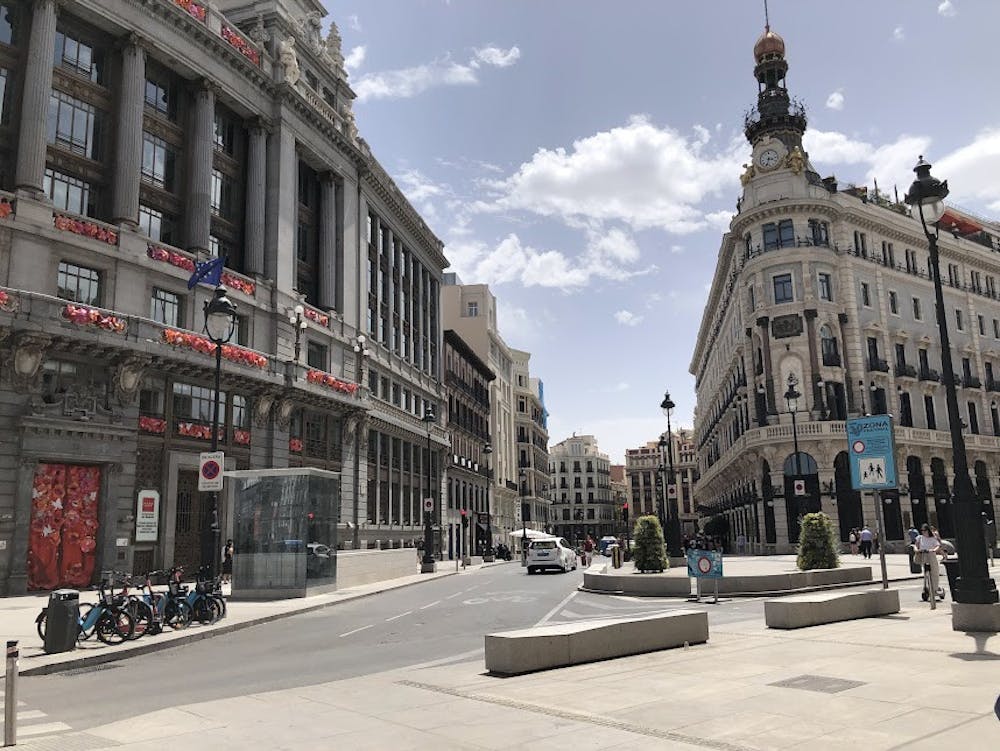
Like many Hopkins students, I entered as a pre-med student, with visions of myself as a great and famous doctor captivating my eyes and echoes of accolades ringing in my ears. I thought for sure that medicine was the career path for me and that no obstacle or setback would stop me.
Plus, I felt like I owed an obligation to my parents to be a doctor. After all, they had worked tirelessly to get their MDs so that they could give our family the best shot at a financially secure lifestyle. What better way to honor that dedication than by being in that same prestigious, lucrative career?
If my parents could do it despite the lack of opportunities and the much more ruthless academic environment back home in South Korea, why wouldn’t I, as someone blessed with some of the best education in the country, be able to do the same? The chance of getting an MD was mine to lose, and I’d be damned if I did.
Fast forward two years later, I have, for now, dropped those aspirations. Of course, I might eventually take up pre-med courses later down the road again if I ever decide to go to medical school anyway. However, just as one famous general said that no plan survives first contact with the enemy, no career plan remains completely intact throughout college and mine was no exception.
Freshmen year, my academic track started simple enough, with me trying to ram in as many major and pre-med courses into my schedule as I could. If it didn’t fit into the coursework of an “ideal'' pre-med applicant, it was swiftly disregarded. I didn't think there was any time to waste, and I sought to get into medicine as fast as possible; it was “damn the torpedoes, full speed ahead” for me.
Of course, none of this was helped by the pandemic, which effectively put many extracurricular academic exploration activities, like research, on hold. I felt like I had to make up for lost time or my career plans would be utterly ruined by a public health calamity that had upended so many of our lives.
However, the months rolled on and assignments and exams piled on and the academic stress accumulated. Little seeds of doubt began to percolate in my head. I had known being pre-med was going to be very difficult. I had gotten into Hopkins motivated with grit, and I didn’t expect that it would get easier.
But it’s one thing to know it and an entirely different thing to experience it. The incredibly heavy workload, unforgiving grading system and difficulty of content exacerbated many of my perfectionistic anxieties.
Moreover, I felt like I was spending and had to spend every bit of free time trying to get something done; if I was just moping around without much to do, even for as little as 20 minutes, I felt like I was “wasting time.”
Many times, my anxiety would break through my outwardly professional and focused facade, prompting me to discuss with my friends if I had made the right choice in working towards being a doctor. I would wonder constantly if the psychological toll was worth whatever financial rewards and social prestige came from being a doctor.
These career choice uncertainties would be exacerbated by my own flagging interest in being a doctor. Every time I heard say one of my friends in International Studies talk excitedly about their work and research, I listened with great enthusiasm. I found myself far more interested in social and health policy, politics and history than any pure science course.
In stark contrast, I increasingly viewed the prospect of being a doctor with apathy. I just couldn’t see myself being excited about being a physician; the only thing keeping me going was the financial and societal rewards of being a doctor, not so much treating patients.
It was then I realized, with the helpful input of my friends and advisors, that I should drop pre-med altogether. Someone who is only in it for the money and social prestige will, in all likelihood, be a terrible doctor, and I have heard one too many horror stories of a patient being given shoddy care by an uncaring physician.
Based on all that, I decided to take a leap of faith by switching my plans over from working towards being a doctor to exploring some other kind of career in public health. As someone who likes creating a carefully thought-out plan, it wasn’t easy just upending everything to do some self-exploration, which inherently comes with more uncertainty.
Yet, I concluded that, despite being out of my comfort zone, making a break from my old career plans to figure out what I really wanted to do in life was a better idea than just going headlong into medical school and likely flaming out. I should take life and its important decisions a bit slower and less rushed to ensure I can truly be happy with myself.
In a way, quitting pre-med was a blessing in disguise, an inflection point in my life that made me realize that I should critically evaluate what I really want in terms of a career rather than uphold some uninformed, prefabricated expectation of myself. Only then would I be truly successful and happy with what I do.
Min-Seo Kim is a junior from Cincinnati, Ohio majoring in Public Health.





